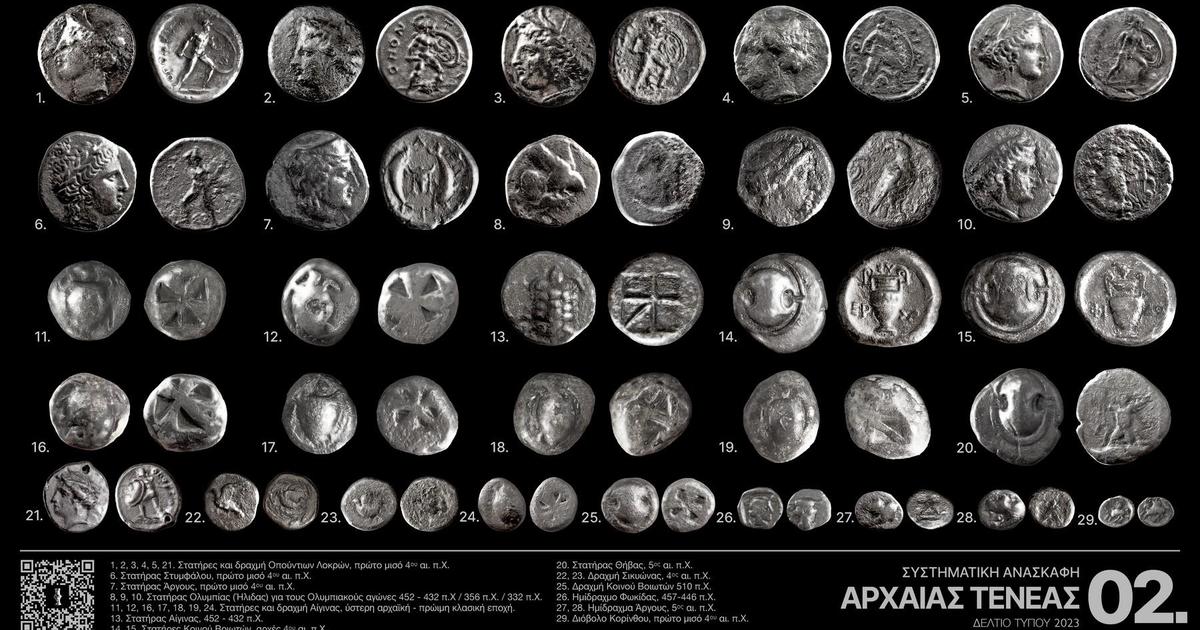
Rare coins and part of ancient aqueduct built by Roman emperor unearthed in Greece
CBSN
Greek archaeologists recently uncovered a trove of ancient artifacts while exploring the lost city of Tenea, which legend suggests was built some 3,000 years ago by Trojan prisoners of war. More than two dozen silver coins and remnants of an important primeval aqueduct were among the discoveries shedding light on settlements and infrastructure during some of the earliest parts of the common era.
The discoveries in Corinth — a city in south-central Greece that draws tourists to see its preserved medieval structures — were made in October by a team headed by the archaeologist Elena Korkas.
A section of an aqueduct thought to have been built by the Roman emperor Hadrian to supply water to Corinth from ancient Tenea was among the project's most notable archeological finds, the Greek Ministry of Culture said in a translated announcement. Hadrian ruled over the Roman Empire during the first century A.D., and remnants of another structure he ordered to be built during his reign, now known as Hadrian's auditorium, was uncovered in Rome in 2009 while construction was underway for a new subway line.
